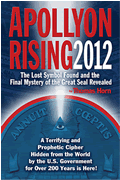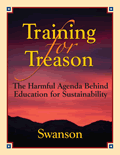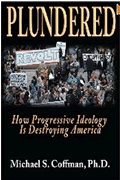By
Anthony Veltri
July 31, 2013
NewsWithViews.com
How the police motto “to protect and serve” has mislead a generation.
In 1963, the police motto “to protect and serve” was officially adopted by the Los Angeles Police Department. The motto has since been adopted by many departments across the nation. While many officers align with this motto as the aim and purpose of their profession, the fact is that this motto has contributed to a substantial gap between what the public perceives as the responsibility of public safety personnel and what an officer has a legal duty to protect. In fact, what many citizens believe to be a police, fire and rescue personnel’s duty to “protect and serve” them is actually in direct conflict with the “public duty doctrine” which states: “absent a special relationship between the governmental entity and the injured individual, the governmental entity will not be liable for injury to an individual... the governmental entity owes a duty to the public in general.”
This unforgettable story highlights this misunderstanding in no uncertain terms. In conjunction with the associated court ruling, the video below spells out in no uncertain terms who the police are NOT responsible to protect. It is 13 minutes long, and I implore you to watch all of it.
As you watch this video, pay special attention to what the public perceives the police to be responsible for... Some of those interviewed even exhibit indignation that the question “would the NYPD come to your aid if you were attacked” was asked in the first place. Then watch what unfolds.
On Feb 12th of 2011, 42-year old Joseph Lozito was riding the subway in New York City when he was attacked by Maxim Gellman, a knife wielding madman who police had been on the lookout for in connection with a drug-fueled 28-hour killing spree. The two police officers who were in the same subway car as Lozito retreated into the locked motorman’s cabin and watched as Lozito was brutally attacked by Gellman. Lozito, a martial arts enthusiast, was able to subdue his attacker, but not before receiving several stab wounds. Once the attacker had been disarmed and subdued by Lozito, the two officers advanced from the locked motorman’s cabin to take over and arrest Gellman. Lozito sued the NYPD in 2012 for injuries he received during the attack, claiming that the NYPD was negligent, as officers did nothing to help him and instead watched the attack. The case was recently dismissed by judge Margaret Chan because “no direct promises of protection were made to Mr. Lozito,” the police had “no special duty” to protect him. (check out the full story here).
Let’s hear that one more time... just to be clear... The police have no duty to protect an individual... just the public at large. I’m not arguing over the law here, my objective is to make as many people as possible aware of what the NYPD officer’s legal obligations were in this situation.
What makes this so ironic and infuriating, is that politicians who time and time again act to remove, or strictly limit the right of the individual to protect themselves with firearms, tasers, pepper spray and the like will often cite statistics regarding the efficiency and effectiveness of law enforcement personnel to respond to “save you.” What they fail to mention, is that it matters not how “fast or efficient” an officer’s response time is, if they have no legal obligation to protect you, or intervene when they get there.
I’ll admit, when I sat through the lectures on negligence in my EMT and fire classes, I was taken aback when I learned how the moral code of conduct that a public safety official voluntarily assumes is quite different from concepts of duty and negligence as viewed from a legal perspective. Once again, I must emphasize that while many public servants WILL be there to render aid, they will not likely be found negligent if they don’t.
In short, courts have ruled, time and time again, that police and emergency response personnel have no duty to protect, rescue or otherwise render aid to a specific individual, only to the public at large. If a public safety official feels unsafe or fears for their safety, they can stand right there and do nothing as you are beaten, burn, or drown. I’m not saying that police, fire and rescue personnel don’t go above and beyond each and every day, but what is especially important to note is that in many instances, they DON’T have to.
What is even more important to be aware of is that there is an alarming trend in which many, departments choose to respond in ways that are least likely to expose them to lawsuits. What does this mean? It means that many departmental policies are now written in such a way that often times prohibits or limits responders from actually responding... The department officials know that they can’t be sued for negligence as no “special relationship” exists, but they might get into hot water for taking extraordinary or heroic measures to “serve and protect”... so which do you think wins out...
I’m all for coming home safe at the end of the day, but policy written to protect an agency from litigation rather than to “protect the public at large” is becoming more commonplace... Don’t believe me? check these out:
“Handcuffed by Policy” firefighters and police watch drowning man die (note, in this story, a witness, frustrated by the lack of response, was the one who pulled the lifeless body from the water)
Warren V District of Columbia it was found that police do not have a duty to provide police services to individuals, even if a dispatcher promises help to be on the way. “..despite the demonstrable abuse and ineptitude on the part of the police because no special relationship existed. The court stated that official police personnel and the government employing them owe no duty to victims of criminal acts and thus are not liable for a failure to provide adequate police protection unless a special relationship exists.”
And chances are, you don’t have any “special relationship” with the police. But in case you were wondering what would constitute a “special relationship,” let me give you an example... In the train attack scenario described in this article, let’s say that after the assailant (Gellman) was handcuffed by police, passengers on the train decided to beat him. Police would then have a duty to defend him, (yes the knife-wielding murderer), because the officers had taken him into custody and he was now their charge. If the NYPD officers stood idly by as the murderer was attacked, as they had when Mr. Lozito was, officers could be found negligent, because a “special relationship” existed between the police and the murderer as soon as he was detained.
If you take anything from this article, please let it be these two points:
1: It is important that each and every one of us understand that WE are ultimately responsible for our safety and for the safety of our family and loved ones. Police and fire may be there to help, but ultimately, it may be up to us, as individuals to render first aid, cpr, or defend our family from from criminals.
2: How we choose to react to this information is of paramount importance. I realize that many readers are already familiar with this information and its implications... To those readers, I would ask: What have you done to prepare yourself and your loved ones in the event that public safety does not respond as expected to a call for help...
For those readers for which this discussion of the “to protect and serve” motto is a new concept, I would ask, what will you do to prepare your family to deal with this paradigm shift? What this means for each of us is different... some may wish to take specialized training in first aid, others may wish to become proficient with a firearm...
| Subscribe to the NewsWithViews Daily News Alerts! |
I believe that many people will shake their heads with disbelief when reading this article and watching the associated video. I implore you: don’t take my word for it... use your favorite search engine and research it yourself. search for “do the police have a duty to protect.” Chances are, if you need help, the system will work as we expect it to, but please understand, we have seen that what the public expects and what you as an individual are actually entitled to when it comes to public safety response are two very different things. What will you do to bridge the gap?
Click Here for more information on keeping yourself and your loved ones safe.
Note: In the future, I’ll show you just how much information Facebook and other networking sites makes available about you and your family, and what implications this has for your privacy.
� 2013 Anthony Veltri - All Rights Reserved
Anthony is the author of Hurricane Katrina – A Journey of Hope, which recounts the work done by emergency search and rescue personnel in the aftermath of Hurricane Katrina in 2005. He has also served as a Branch Chief at the US Department of Homeland Security HQ where he led a team of professionals charged with protecting the nation’s critical infrastructure ranging from nuclear power plants to the Hoover Dam. Has its roots in several years of public and private sector work, as well as disaster relief work.
Through his family's consulting company, Anthony is now focused on helping hardworking people use the skills and talents they already have, to help them create products and services to share with a community of people who want them, and in turn, help them make additional income to better their life, become more efficient and more self reliant.
Website: personalprotectiontrainingcourses.com
E-Mail: anthony@personalprotectiontrainingcourses.com
















 Share
This Article
Share
This Article








